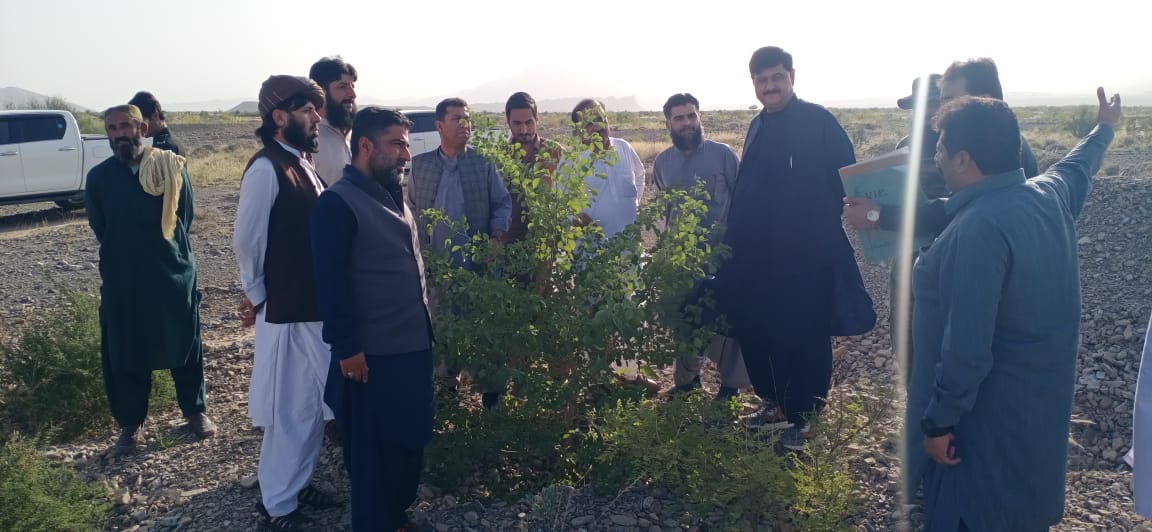Visit was conducted on 09-10th September 2023
Zhob Division:
- Forest Types: Zhob Division, like many parts of Balochistan, has arid and semi-arid landscapes. The forests in this region mainly consist of dry and sub-tropical forests, primarily adapted to arid conditions.
- Tree Species: Common tree species found in Zhob Division include Acacia species, Tamarisk, Olive, Chilgoza and Shina etc. These trees are adapted to the arid climate and play a crucial role in soil conservation and providing fodder for livestock.
- Challenges: Deforestation, habitat degradation, and unsustainable land use practices have been challenges in Zhob Division, as in other parts of Balochistan. Conservation efforts, led by the Balochistan Forest & Wildlife Department and local communities, focus on reforestation and sustainable management practices to address these challenges.
Loralai Division:
- Forest Types: Loralai Division, similar to Zhob Division, experiences arid and semi-arid conditions. The forest resources in this division primarily consist of dry and sub-tropical forests.
- Tree Species: The tree species found in Loralai Division include those adapted to arid and semi-arid environments, such as Acacia, Olive, Tamarisk, and Prosopis. These trees contribute to soil conservation and are an essential source of forage for livestock in the region.
- Conservation Efforts: The Balochistan Forest & Wildlife Department, in collaboration with local communities, implements conservation and reforestation projects like Upscaling Green Pakistan Programme (TBTTP) in Loralai Division to combat deforestation and habitat degradation.
Both Zhob and Loralai Divisions, like many parts of Balochistan, face common challenges related to land degradation, climate change, and unsustainable land use practices. Efforts are being made to protect and sustainably manage these forest resources to ensure their ecological and economic benefits for the local communities and the region.
